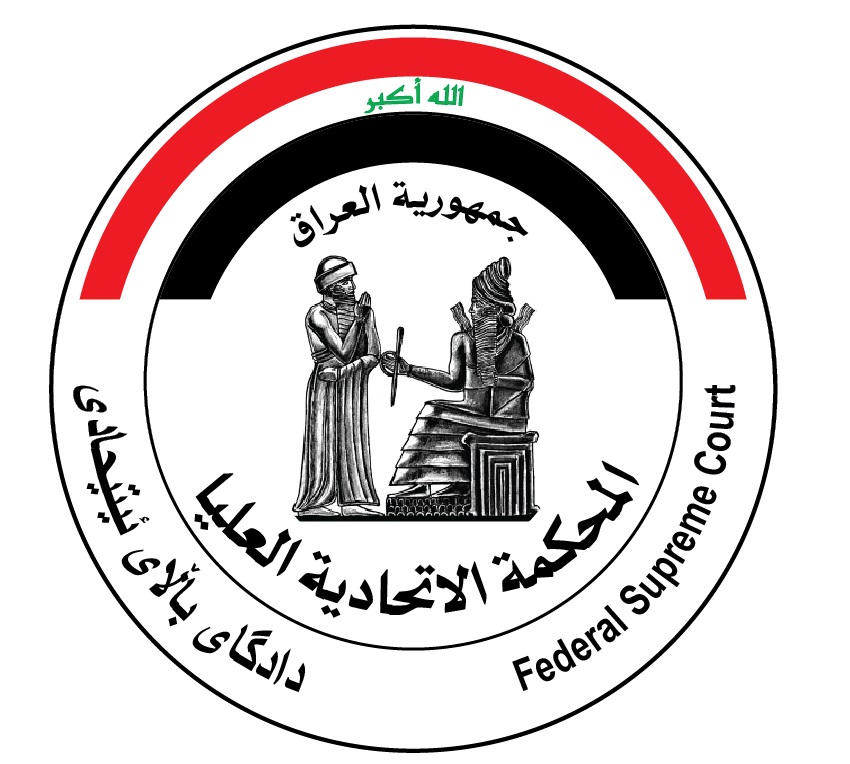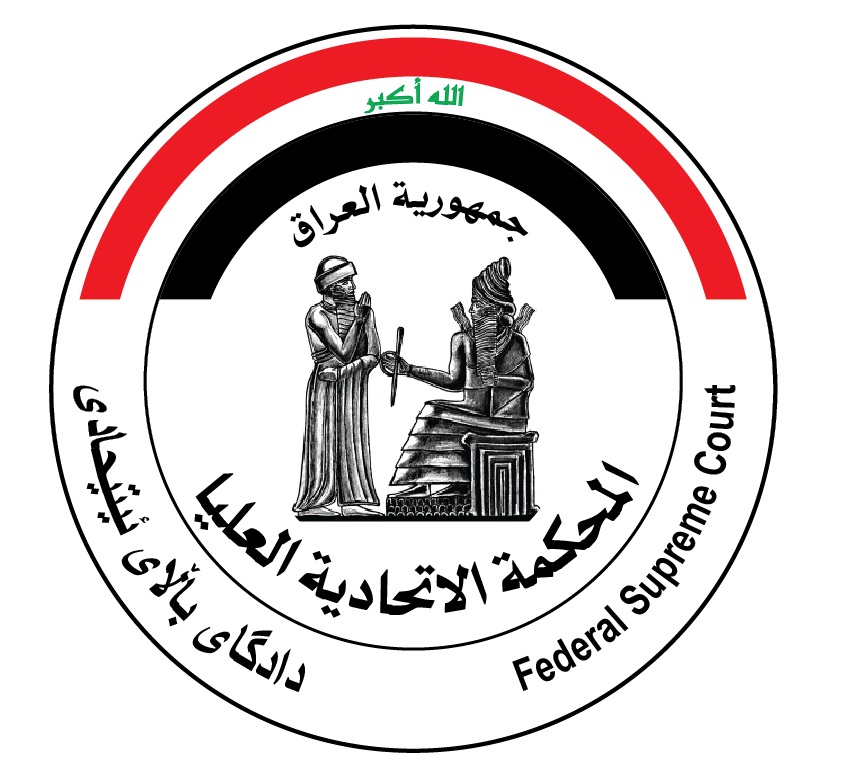
The Federal Supreme Court dedicate a chapter in its volume of the principles of its explanatory decisions
The volume of the legal and constitutional principles issued by the Federal Supreme Court had dedicated a chapter for the explanatory decisions.
The Federal Supreme Court issued on (8.11.2020) a volume for the decisions and judgments issued between (2005-2020) in the fifteenth anniversary of establishing the Court as the first judicial and constitutional Court in Iraq.
The explanatory decisions had been issued according to the article (93/2nd) of the constitution, these decisions were based on requests presented to the Court. The judgments were corresponding to the constitution and set the jurisdictions of the federal powers stipulated in article (47) of the constitution (legislative, executive, judicial) and distributing the jurisdictions between the components of the Federal order, it is also shown many rights and freedoms.
The Federal Supreme Court issued judgments concerns in the jurisdictions of the President of the Republic issuing a private amnesty, approving the laws, his members, and the method of how questioning him according to what the constitution stipulated, in addition to the dates of his election.
It stressed the non-discrimination between Iraqis living inside and outside Iraq with regard to the right to vote, ruled that the date of the general elections could not be postponed, and defined the concept of the calendar year contained in the Constitution, and the beginning of the electoral cycle of the House of Representatives.
The principles of the Court established the legislative competences of the House of Representatives, its role in treaties, the clarification of the supplementary budget, and the provisions of the absence of the position of speaker of the House of Representatives.
The court also strengthened the supervisory competences of the House of Representatives, and drew up the mechanisms of interrogation from the request to submit it to the decision issued, and ruled that the challenge to the interrogation is not a reason to disable it, and that the oversight of the House of Representatives includes all members of the executive branch, and showed how to deal with the seat of the vacant deputy, and to answer the possibility of reducing the members of the Council by amending the Constitution, in accordance with the constitutional mechanisms stipulated.
The Federal Supreme Court has drawn up constitutional mechanisms on how to form the Council of the Federation, the second component of the legislative authority provided for in articles 48 and 65 of the Constitution.
According to these judgments, the Federal Supreme Court interpreted article (76/I) of the Constitution concerning the most numerous parliamentary bloc charged with submitting a candidate for the presidency of the Council of Ministers.
The court came up with the terms of reference of the prime minister in proposing and appointing the holders of special degrees, in the selection of members of his ministry, the possibility of appointing some of them by proxy, and ways to dismiss them.
The Federal Supreme Court preserved the representation of components in the House of Representatives, defined the concept of population density, and issued other explanatory provisions concerning the public freedoms enshrined in the Constitution.
The Court defined the concept of public order and public morals in the Constitution and affirmed that the constitutional prohibition on not conducting population change was absolute and aimed at preserving the identity of the population in its geographical, ethnic and religious areas, and promoting freedom of movement and travel inside and outside Iraq.
The Supreme Federal Court established the association of independent bodies in accordance with the provisions of the Constitution, and mechanisms for questioning and dismissing their officials.
The Court clarified the time scale of the application of article (140) of the Constitution on disputed areas and concluded that the census contained in that article differed from the general population census.
The explanatory principles of the Supreme Federal Court stressed that there was no provision for the separation of any component of the federal system: the capital, the provinces, the decentralized provinces, and local administrations.
The principles referred to how the Law of the Federal Supreme Court and the quorum necessary to be available in the vote, indicating that the judgments and decisions issued by them are effective from the date of their issuance unless the ruling provides for another date for its entry into force, and limited the powers of investigation, arrest, and trial to the judiciary, where it went on to say that the inclusion of each text to the contrary is invalid, and noted that the Constitution prohibits the establishment of special courts.
All these interpretive principles and other provisions have all constituted a legitimate reference to the constitutional order in Iraq, which in turn contributed to the strengthening of the principle of the rule of law.




